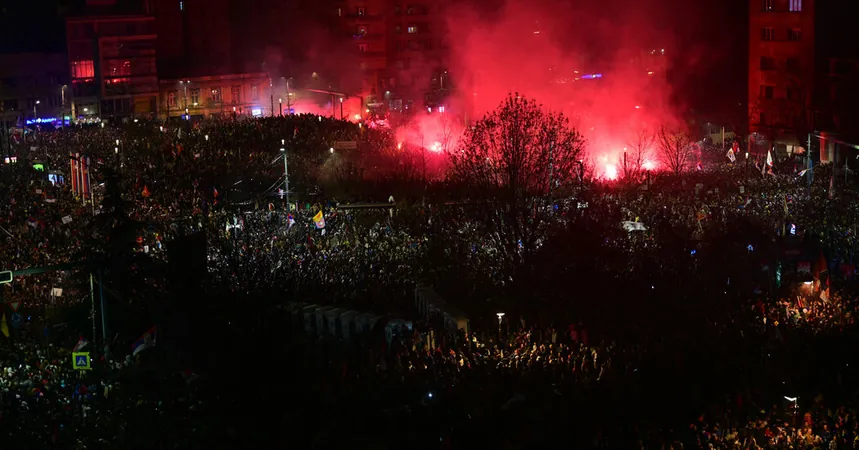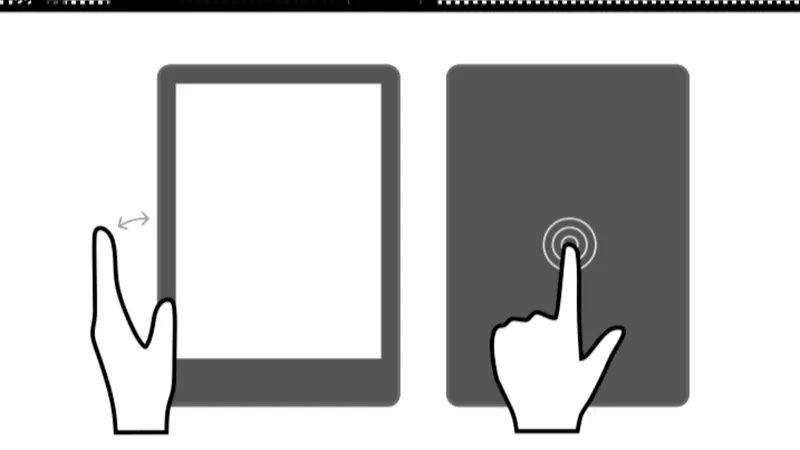
Massive Protest in Belgrade Marks Turning Point Against Serbian Leader Vucic
2025-03-16
Author: Yan
Historic Protests in Belgrade
In a historic display of public dissent, over 100,000 demonstrators took to the streets of Belgrade on Saturday, igniting a wave of student-led protests against President Aleksandar Vucic. This monumental gathering is the largest in decades, signaling deep-rooted discontent with Vucic's government amidst fears of escalating violence fueled by the regime’s warnings.
Government's Response to Protests
The protest unfolded despite Vucic's claims that opposition groups are inciting violence to establish “civil war” conditions, suggesting a clandestine effort to destabilize his rule. In response, opposition parties revealed that they possess intelligence from within Serbia's security services indicating possible plans to detain political opponents, further intensifying the political atmosphere.
Estimates and Injury Reports
Crowd estimates varied significantly; police figures reported 107,000 participants, while student organizations claimed that the actual number may have reached a staggering 800,000.
Vucic's Reaction to the Protests
During a press conference following the rally, Vucic characterized the event as a manifestation of “negative energy” directed at his administration. He acknowledged that 56 individuals were injured, though none seriously, and credited his security forces for preventing potential violence. Notably, he declared that his government “understood the message” from the protestors, suggesting a readiness for change, yet he refrained from outlining specific reforms.
Cautious Approach to Protest
In a cautious approach reminiscent of the 2014 Ukrainian crisis, Vucic has avoided a severe crackdown on peaceful demonstrators, although some protests have witnessed isolated attacks from his supporters. Analysing the political landscape further, Vucic alarmingly linked the protests in Serbia with similar movements in neighboring Hungary, asserting that they bear the “same signature,” and accusing Western influences of inciting upheaval against populist leaders.
Catalyst for Protests
These nationwide protests erupted initially in response to a tragic incident in November, where a collapsed concrete canopy at a newly renovated railway station claimed 15 lives. Protestors have laid blame on corrupt officials and negligent contractors associated with the project, with students demanding accountability through criminal prosecution and the resignation of implicated ministers. Other opposition figures are coalescing around the call for a “transitional government” to facilitate new elections, pushing Vucic to the margins of legitimacy.
Issues with Electoral Integrity
Despite mounting pressure, past elections, conducted under Vucic's Serbian Progressive Party, have faced allegations of widespread voter fraud and media manipulation, casting a shadow over the integrity of the electoral process. While Vucic has expressed willingness to hold new elections, he categorically dismisses the idea of sharing power with opposition parties.
Public Sentiment and Calls for Action
As the movement grows beyond student bodies and into mainstream society, chants of “Arrest Vucic” rang throughout Saturday’s protest, with many calling for his immediate removal from power.
International Implications
This political unrest creates a lingering dilemma for the United States, particularly under the Biden administration, which previously sought to pivot Vucic away from his historical ties with Russia. Criticism mounts around the perceived leniency toward Vucic's government, particularly concerning his controversial policies and political maneuvers.
Serbian-American Relations
Meanwhile, Vucic's recent interactions with figures from the Trump administration, including a meeting with Donald Trump Jr., have drawn scrutiny, further complicating the landscape of Serbian-American relations. With U.S. foreign policy still reeling from shifts under the prior administration, the Serbian president remains emboldened—having recently launched police raids on NGOs he accuses of undermining his rule.
Looking Forward
As tensions rise, the unfolding events in Serbia may not only reshape its political landscape but also reverberate across Southeast Europe, prompting international observers to closely watch the potential for dramatic change in the region’s power dynamics.



 Brasil (PT)
Brasil (PT)
 Canada (EN)
Canada (EN)
 Chile (ES)
Chile (ES)
 Česko (CS)
Česko (CS)
 대한민국 (KO)
대한민국 (KO)
 España (ES)
España (ES)
 France (FR)
France (FR)
 Hong Kong (EN)
Hong Kong (EN)
 Italia (IT)
Italia (IT)
 日本 (JA)
日本 (JA)
 Magyarország (HU)
Magyarország (HU)
 Norge (NO)
Norge (NO)
 Polska (PL)
Polska (PL)
 Schweiz (DE)
Schweiz (DE)
 Singapore (EN)
Singapore (EN)
 Sverige (SV)
Sverige (SV)
 Suomi (FI)
Suomi (FI)
 Türkiye (TR)
Türkiye (TR)
 الإمارات العربية المتحدة (AR)
الإمارات العربية المتحدة (AR)